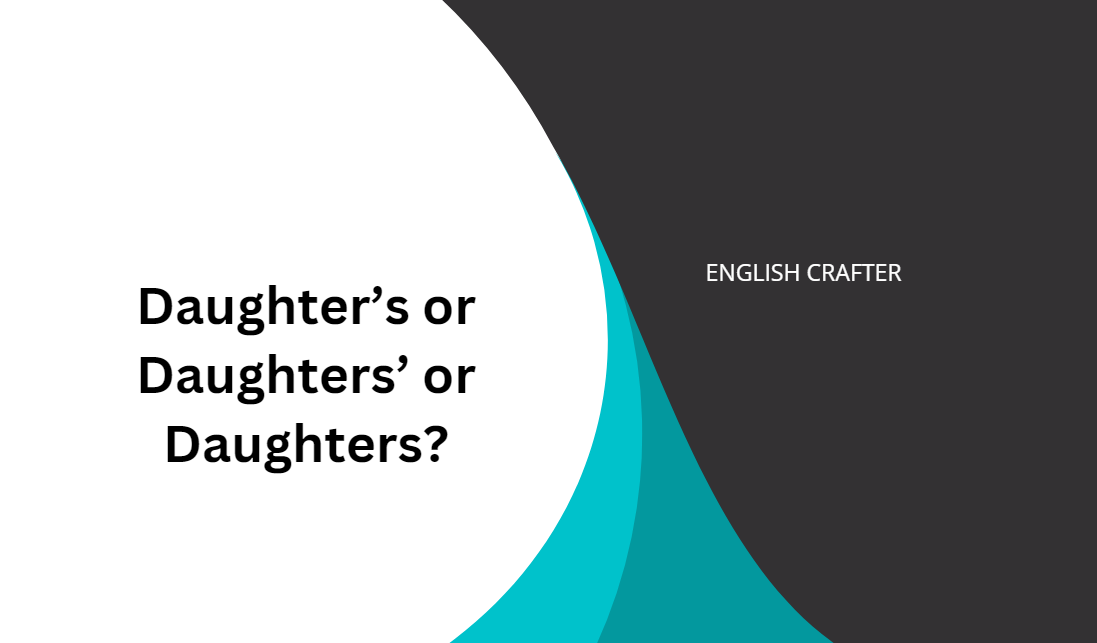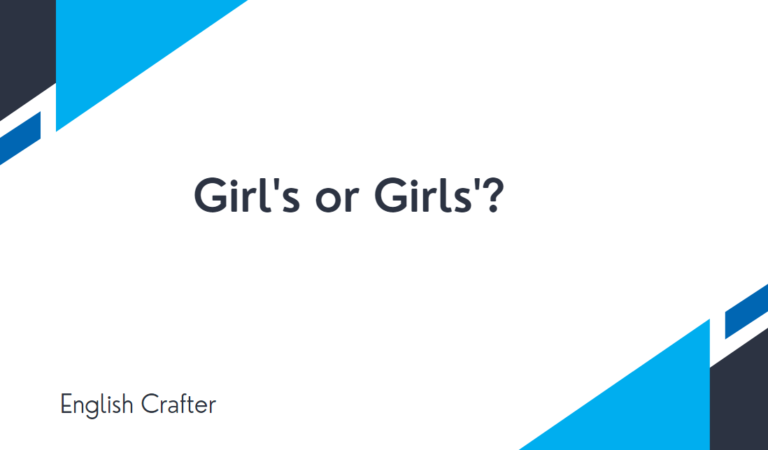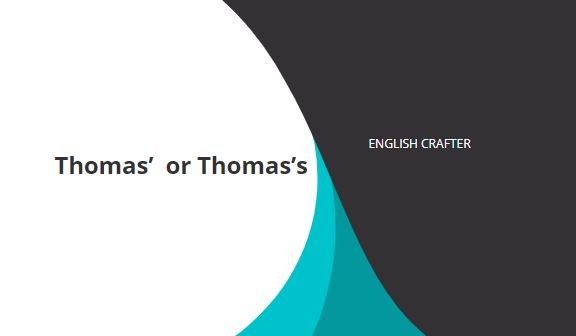Daughter’s or Daughters’ or Daughters?


The word daughter’s is the singular possessive form of daughter. E.g., “Tomorrow is my daughter’s graduation.” Furthermore, the term daughters’ is the plural possessive. E.g., “My daughters’ achievements are remarkable.” Finally, daughters is the plural form. E.g., “My daughters are pursuing different career paths.”
This chart shows the four forms in a more straightforward format:
| Form | Example |
| Singular | Daughter |
| Plural | Daughters |
| Singular possessive | Daughter’s |
| Plural possessive | Daughters’ |
As you can see, you only need to put the apostrophe when you use the possessive form of daughter.
These four examples show how each term appears in a sentence:
Singular: I have an eldest daughter named Emily.
Plural: Both of my daughters enjoy playing musical instruments.
Singular possessive: My daughter’s artwork is displayed in the gallery.
Plural possessive: My daughters’ talents extend to various artistic endeavors.
Please keep reading the rest of the article, where we explain how to use the different forms of daughter in more detail.
We have some fantastic examples to show you how to use daughter’s, daughters’, and daughters in a sentence.
Daughter’s
The term daughter’s is the singular possessive form of daughter.
Therefore, you use it when you mention something belonging to a single daughter.
The examples below show how you can use daughter’s correctly.
In the first, we use the apostrophe to show that the achievement belongs to Emily:
- My daughter’s graduation ceremony is tomorrow.
Whereas in the second, there is no specific event or possession tied to Emily, so you omit the apostrophe:
- I am proud of my daughter.
Furthermore, the following two examples show how the possession can be both concrete and abstract.
It can refer to a physical item or accomplishment:
- My daughter’s artwork won first place at the exhibition.
- My daughter’s academic success is a source of joy for our family.
Alternatively, it can refer to qualities, attributes, or relationships:
- My daughter’s kindness is admired by everyone else in the family..
- My daughter’s friendship with Sarah has lasted for many years.
To sum up, you should use daughter’s if one daughter possesses something or if you are highlighting an achievement or quality specific to that daughter.
Now that we’ve clarified the use of daughter’s, let’s explore when it is correct to use the word daughters’. It differs since it is used to refer to multiple daughters.
Daughters’
The term daughters’ is the plural possessive form of daughter.
Consequently, that means you should put the apostrophe on the outside of the “s” when you refer to something belonging to two or more daughters.
Take a look at these two examples:
- My daughters’ musical talents complement each other. (Two daughters)
- My daughters’ interests cover a wide range of subjects. (Unspecified number of daughters)
Here are some more example sentences for you to review:
- My daughters’ room is filled with laughter and creativity.
- The daughters’ joint project for school received top honors.
- The two daughters’ academic achievements are equally impressive.
- The daughters’ dedication to community service is admirable.
- The gift was from the daughters’ shared savings.
So, daughters’ should be used if multiple daughters possess or own something collectively.
Lastly, we’ll have a closer look at the word daughters. This one is quite different from the other two, daughter’s and daughters’.
Daughters
The term daughters with no apostrophe is the plural form of daughter.
You can use it to refer to two or more daughters as long as you are not specifying something that a daughter possesses.
You can use it to refer to a group of daughters:
- My daughters are involved in various extracurricular activities.
Alternatively, it can refer to daughters in a general sense:
- Daughters often seek advice from their mothers.
We have gathered some more sentences in case you need to see some more examples of how to use daughters:
- Both daughters are pursuing different career paths.
- I always enjoy the stories she tells about her daughters.
- The daughters are known for their academic excellence.
- All of the daughters are talented in their own unique ways.
- The daughters are planning a surprise celebration for their mother’s birthday.
So, daughters should only be used if multiple daughters are mentioned, and you don’t refer to any specific possessions in the sentence.






